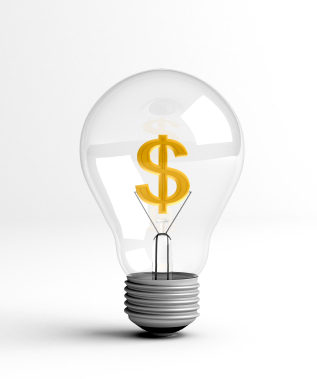Refinancing – When to Pull the Trigger
April 16, 2010Eight Ways to Improve Your Credit Score
April 26, 2010 Buying your first home is a milestone right up there with the biggest I-have-arrived moments.
Buying your first home is a milestone right up there with the biggest I-have-arrived moments.
Whether it’s checking your satellite picture on Google earth, reading your first condo meeting notice, mowing your grass or just choosing a new paint colour without have to check with the landlord, purchasing your first home is an undertaking both daunting and exciting.
As with any other big decision, there is a lot to know. Ask a lot of questions of people you trust and do your own online research so you can figure out what works best for you.
To help in that regard, here are my thirteen best tips for every first-time home buyer. This is a summary of the advice I have received over the years (the good parts anyway) along with some of my own insights.
- Ease into it. Go to a few Open Houses. If you’re buying with a partner, talk about what you both want and make a list. Try to rank the items. Check out realtor.ca to see listings in different areas. Pay attention to local schools, parks and proximity to transit and retail shopping.
- S
 tart keeping track of what you spend. The more accurate you can be the better. Then develop a budget that includes your projected mortgage payment with estimates for property taxes and maintenance. Trust me on this. Twenty-five years is a long time to owe money. Developing a realistic and manageable budget now will save you a lot of money and stress over the long run.
tart keeping track of what you spend. The more accurate you can be the better. Then develop a budget that includes your projected mortgage payment with estimates for property taxes and maintenance. Trust me on this. Twenty-five years is a long time to owe money. Developing a realistic and manageable budget now will save you a lot of money and stress over the long run. - Get pre-approved. Once you understand your cash flow and you have an idea of how much monthly income you want to commit to your mortgage, get pre-approved and lock in a rate for 120 days. While a pre-approval may not get you the lender’s best rate and it doesn’t guarantee that you will be approved on your full mortgage application, it does give you some rate insurance, and at no cost.
- Don’t try to time the market. If you buy a solid asset at a fair price and stay in the market for the long haul, you’ve set yourself up for success.
- Choose a good realtor. Referrals from someone you trust are always a good option, but if you are starting from scratch, besides the usual vetting, try to find someone who does a lot of business in your neighbourhoods of interest. One easy way to do that is to scan the names of realtors when searching MLS listings in your area. You’ll probably notice a few that pop up frequently, and the busy ones are usually that way for reason.
- Location, location, location. It’s a well-known cliché, but doesn’t that also make it the ultimate proof statement?
 If you’re planning to expand your family in the next five years, make sure your first property can accommodate it. The longer your home fits into your time horizon, the longer you have to defray the transaction costs of buying and selling (like real-estate commissions and land-transfer taxes), and the more flexibility you have to grow into it. You don’t want to have to sell urgently because your second child is sleeping in a dresser drawer!
If you’re planning to expand your family in the next five years, make sure your first property can accommodate it. The longer your home fits into your time horizon, the longer you have to defray the transaction costs of buying and selling (like real-estate commissions and land-transfer taxes), and the more flexibility you have to grow into it. You don’t want to have to sell urgently because your second child is sleeping in a dresser drawer!- If you’re in a bidding war, take your best shot. Bidding wars are gut wrenching because by the time you’re ready to plunk your money down, you’ve gone over every inch of the house in your mind and made it your own. If you’re in that situation, consider the advice that I got from my real-estate agent when I was in that situation. He said, “Offer a number where, if you lose the house, you won’t be kicking yourself the next day if you find out it sold for $5,000 more.” If you do that and someone else makes a higher offer, c’est la vie.
 Get a home inspection. A good home inspection costs about $500 but is worth every penny. Do your homework beforehand. Specifically, ask about the experience and background of the person the inspection company is sending out. For this kind of advice, I’d want someone who has experience in construction, and I’d ask if they can bring a thermal camera (to check for air loss, cold spots and drafts). I know $500 sounds like a lot, but on a purchase of this size it’s a drop in the bucket, especially compared to what you might have to pay for a major repair.
Get a home inspection. A good home inspection costs about $500 but is worth every penny. Do your homework beforehand. Specifically, ask about the experience and background of the person the inspection company is sending out. For this kind of advice, I’d want someone who has experience in construction, and I’d ask if they can bring a thermal camera (to check for air loss, cold spots and drafts). I know $500 sounds like a lot, but on a purchase of this size it’s a drop in the bucket, especially compared to what you might have to pay for a major repair.- Consider taking out a First-Time Home Buyer’s RRSP loan. This allows you to borrow up to $35,000 from your RRSP (each), and the funds can be put toward your down payment or used to cover closing costs, moving expenses and/or home renovations. Borrowers should especially consider this option if it will increase their down payment to 20% of their purchase price and eliminate the need for high-ratio default insurance.
- Take advantage of tax rebates and credits. The First-time Home Buyer’s Tax Credit, introduced in 2009, gives you a credit of $750. Both Ontario and Toronto offer rebates for land-transfer taxes to first-time home buyers. (To get an estimate of what your rebates will be, check out my Closing Cost Calculator.)
- Don’t rush a major renovation. If at all possible, live in your house for a while before you renovate. You’ll develop a better sense of where you want things to go and how you want to use each part of the home.
- Have fun with it! Buying your first house is an adventure of discovery and an experience you’ll remember for the rest of your life. There will be times when the process is stressful (especially on offer night) but done right, it can fun and very rewarding.
 The Bottom Line: We make our best decisions when we feel secure in the knowledge that we have planned properly and have approached big decisions in a methodical, measured way. Do that, and you give yourself the best possible chance for success and happiness.
The Bottom Line: We make our best decisions when we feel secure in the knowledge that we have planned properly and have approached big decisions in a methodical, measured way. Do that, and you give yourself the best possible chance for success and happiness.








3 Comments
Some good advice…I would also suggest the prospective purchaser to calculate their monthly expenses off of net income instead of gross. It always surprises people when they go through this exercise how little money they have left at the end of the month once they pay mortgage, taxes, hydro, gas, water, insurance,food, car loan, student loan….if at the end of this you are okay with what is “left”, then go ahead and take the plunge
Very good read. This is the message we put out there when we do our speaking seminars at the banks.
It is amazing to visit your blog! Thank you for sharing the great home buying tips on this article. It will definitely helpful to the first time home buyers.